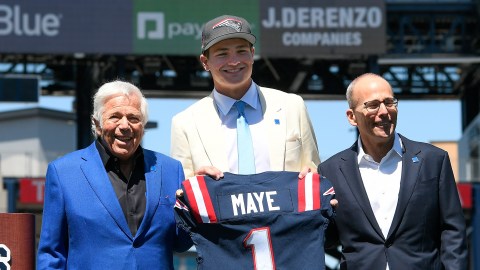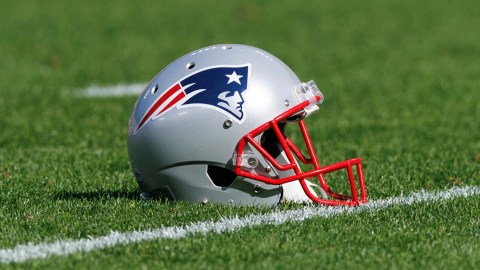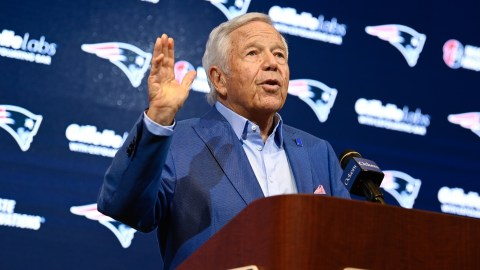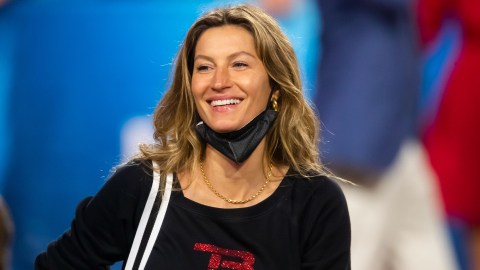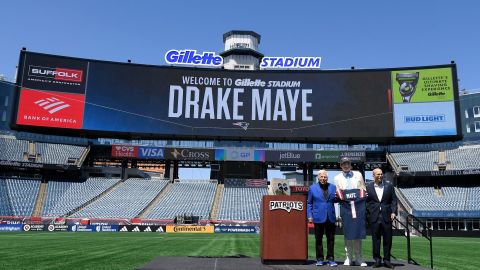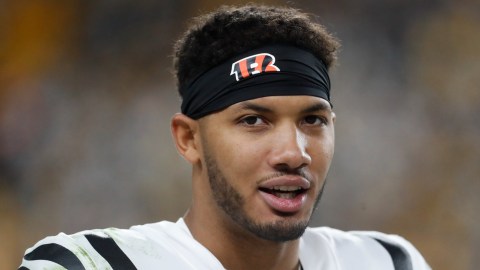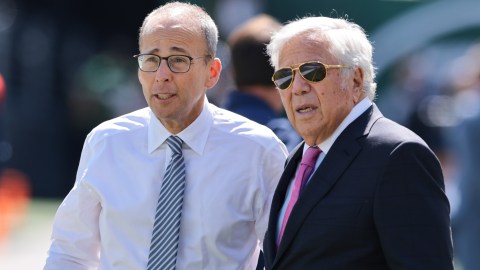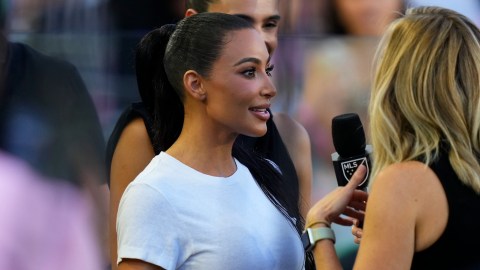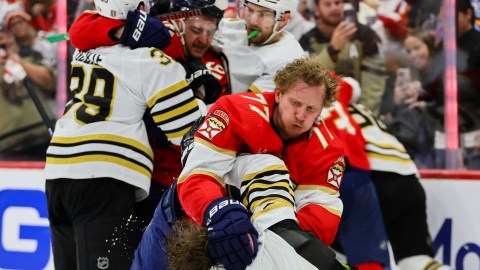DeAndre Hopkins will not be taking his talents to New England.
Hopkins on Sunday agreed to terms with the Tennesse Titans, according to multiple reports, ending months of speculation about the star wide receiver’s next landing spot.
The Patriots hosted Hopkins for a free agent visit in June and were among the leading suitors for the five-time Pro Bowler. But he ultimately chose Tennessee.
With Hopkins now off the board, here are three thoughts on what his decision means for the Patriots and what comes next for New England’s offense:
Story continues below advertisement
1. Simply put, Hopkins is a player who would have helped the Patriots. Even past his prime at age 31, he would have immediately become the top option in a receiving corps that lacked high-end talent the past several seasons. Hopkins would have been easily the most accomplished offensive weapon quarterback Mac Jones has had in his NFL career.
The Patriots could have matched the Titans’ contract offer, too. According to multiple reports, he’s signing a two-year, $26 million deal with a max value of $32 million. His base salary this season: $12 million, plus up to an additional $3 million in incentives.
That’s more than some experts predicted Hopkins would command after the Arizona Cardinals cut him earlier this offseason, but New England had the ability to match or exceed Tennessee’s offer if it chose to do so. The Patriots have roughly $17.7 million in available salary cap space, per OverTheCap, having freed up an extra few million with recent extensions for DeVante Parker and Ja’Whaun Bentley.
Story continues below advertisement
But despite the positive reports that followed Hopkins’ Patriots meeting and multiple New England players publicly lobbying for the team to sign him, Bill Belichick seemingly did not value Hopkins nearly as much as the Titans did. Longtime NFL reporter Mike Giardi reported Tennessee was “far more” aggressive in its pursuit of Hopkins. The Patriots, Giardi added, “wanted Hopkins but wanted him at their price.”
“Hopkins prioritized money over everything,” Giardi tweeted Sunday.
ESPN’s Jeremy Fowler reported the Patriots’ “base financial package wasn’t in the same ballpark” as what Tennessee offered Hopkins.
Story continues below advertisement
2. With Hopkins no longer an option, here’s how the Patriots’ receiving corps looks 1 1/2 weeks out from the start of training camp:
JuJu Smith-Schuster
DeVante Parker
Kendrick Bourne
Tyquan Thornton
Tre Nixon
Kayshon Boutte
Demario Douglas
Malik Cunningham
Ed Lee
Raleigh Webb
On paper, that’s still a solid top four, and Boutte and Douglas both have potential as sixth-round rookies. Smith-Schuster, New England’s marquee offseason signing, has a higher ceiling than the guy he’s replacing, Jakobi Meyers. The Patriots just signed Parker to an extension, so they clearly believe he can give them more consistent production than he did last season. There are reasons to be optimistic about Bourne and Thornton, too, neither of whom flourished in Matt Patricia’s deeply flawed 2022 offense.
Newcomer Mike Gesicki should be considered an extension of this group, as well, as he’s expected to play far more snaps in the slot than as a traditional in-line tight end. Cornerback/return man Marcus Jones also made multiple productive cameos at receiver last season.
Story continues below advertisement
Add in veteran tight end Hunter Henry and last season’s offensive MVP, running back Rhamondre Stevenson, and this is a more talented collection of skill players than the Patriots boasted last season, even with Hopkins not joining the party. And all of them should greatly benefit from the arrival of new offensive coordinator Bill O’Brien, whose experience and steadying influence immediately were evident in organized team activities and minicamp.
But real questions remain at both receiver and running back. Smith-Schuster, Thornton and Boutte all missed extended time this spring. Missing out on Hopkins shrinks that group’s margin for error if injury issues continue into the season. Smith-Schuster also hasn’t shared much on-field work with Jones thus far — not ideal as he looks to replicate the connection the QB had with the uber-reliable Meyers.
In the backfield, the Patriots have an ideal top option in Stevenson but a concerning lack of proven depth behind him. Ty Montgomery, 2022 draft picks Pierre Strong and Kevin Harris, and longtime practice squadder J.J. Taylor round out New England running back room, with veteran James Robinson already getting the boot before the summer break.
It’s not uncommon for Patriots backs to emerge in Year 2 after quiet rookie seasons, so there’s hope for a breakout from Strong and/or Harris. Belichick also is a big fan of the versatile Montgomery, who played well this spring after missing nearly all of last season with an injury. But it wouldn’t be surprising to see the Patriots add another body there in the coming days. Which brings us to…
Story continues below advertisement
3. Could the Patriots land the NFL’s other top-tier free agent, Dalvin Cook? They’ve been linked to the running back since his release from the Minnesota Vikings last month, with Fowler last week reporting they were “at least intrigued” by the idea of pairing Cook with Stevenson to form what would be one of the league’s top running back duos.
Even in a down season by his standards, the 27-year-old Cook rushed for 1,173 yards and eight touchdowns and caught 39 passes for 295 yards and two scores for Minnesota in 2022. He made the Pro Bowl in each of the last four seasons.
Other big-name backs still on the market include Ezekiel Elliott, Kareem Hunt and Leonard Fournette.
The Patriots, who are set to hold their first training camp practice next Wednesday, July 26, entered Sunday with two open spots on their 90-man roster.
Story continues below advertisement
Featured image via Mark J. Rebilas/USA TODAY Sports Images
